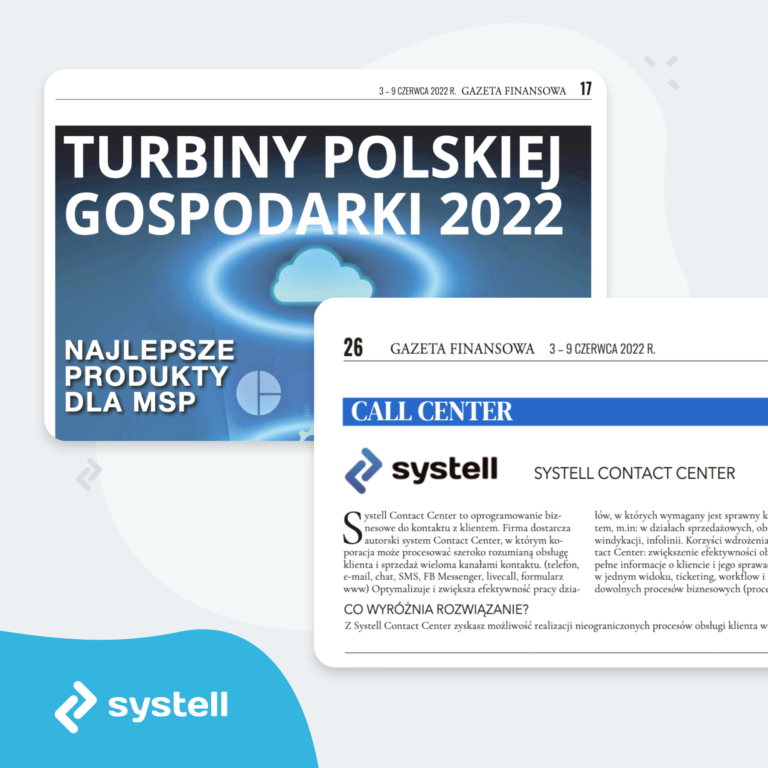When researching call centre solutions, call centre managers and management boards usually compare the functionalities of competing products. Generally there are two types of call centre solutions: on-premise phone systems and hosted phone systems. The main difference between them is the way they are deployed and delivered to your company. Now, one could think this is not very important. After all, a business-grade phone system should just work on as many working posts as needed. But it is precisely the deployment and delivery model that is critical for a plethora of aspects, including one as vital as ensuring work continuity in your company.
Selected call centre systems
A modern-day PBX system is usually a web-based software based on a client/server model. It means that all a consultant needs to do is to open his/her web browser and enter login details to access the system. The web browser will then be connected to the server and display the website that functions as end user software. In order to understand why the deployment and delivery model is so important, we need to answer the following question: “Where is the server located and who owns it?”
Hosted PBX or Software as a Service (SaaS)
Cloud-based services, or SaaS, have been gaining more and more popularity among companies, including those operating in contact centre sector. Generally speaking, a hosted phone system is a service offering time-limited access to a software. Companies do not purchase an actual system license, but pay for being able to use a solution hosted on the service provider’s servers. Payments are usually made in the form of a monthly subscription. The fee covers the total cost of access to a hosted service. In other words, the service includes hosting of servers with appropriate security and backup levels as well as access to a business-grade phone system for the number of working posts specified in the contract. When using the system, contact centre consultants connect to the servers of the service provider, i.e. the manufacturer of the phone system software.
Learn how a hosted phone system works.
On-premise phone system
If you decide on an on-premise PBX, you need to purchase a license for the selected software. Such license may be time-limited or lifetime. We offer a lifetime license for Systell Contact Center system. An on-premise system requires that you have a server this software will be deployed and your licence key uploaded on. It does not matter whether you have your own server room or use a date centre. What is important, is that an on-premise phone system is deployed on servers that belong to the company using that system.
Learn more about an on-premise PBX
Which phone system is better?
Asking which deployment and delivery model is better is like asking someone whether they prefer apples or oranges. Each option has as many opponents as supporters, no matter what scientific evidence shows. Therefore, we cannot tell you which option is better. Instead, we will discuss how they differ from each other, so that every company can choose what is best for them. Because what matters is to make the right choice. As a software manufacturer, we are aware that our customers have different needs regarding server infrastructure. That is why we have created a system, which can be deployed any way you want – because our priority is to offer our customers a choice and not force them to use just one deployment model!
System management
Each and every server needs an administrator who is responsible for smooth and problem-free functioning of the server and the software that is deployed on it. An administrator should be able to identify the moment when it is necessary to carry out maintenance, etc. He/she should also be easy to reach at any time in case of a breakdown and/or downtime of a server or system installed on it. If a business chooses an SaaS solution, all administrative issues are handled by the service provider. The software manufacturer is responsible for reliable, smooth and continuous operation of its cloud servers and software.
On the other hand, if a company deploys an on-premise system on its own servers, then it is responsible for all administration and maintenance. If the company has its own server room, then it probably employs an IT system administrator already. The deployment of an on-premise PBX will therefore mean new work duties for him/her. Some of these duties can be eliminated, if the company uses server services of an external data centre. In such case it is the data centre that handles all issues related to ensuring continuous operation of the servers. The company, however, is still responsible for such configuration of the servers to fit the requirements of the software.
System security
The same applies to ensuring secure access to the company’s phone system. In the case of a hosted PBX, all the issues related to the appropriate protection of the system are handled by the software provider. In the case of an on-premise phone system, the company has to rely on the knowledge and skills of its IT system administrator.
System availability
What has been said above can be summed up in a single term, i.e. software availability. The availability of a software is expressed as a percentage and shows what percent of time (in a year) a company is able to use this software without server-induced problems. Software availability depends on many factors, including proper management and protection of servers. Providers of cloud solutions are therefore committed to ensuring the highest possible availability ratio of their systems. Of course companies with on-premise PBXs managed by good IT system administrators will achieve equally high availability ratios as in the case of SaaS solutions. One just needs to be aware that in such case it is the company that bears the risk of non-availability, and not the system provider.
Data storage
A company that has an on-premise PBX, has full control over all the issues related to data storage, because both the phone system and all the data stored in it belong to that company. Therefore it is the contact centre management team that decides when system backups should be performed and how long the data is stored. The same applies to personal data related to customer service, whose storage period might be regulated by law. It is different with a hosted PBX. In this case a company must be aware of the fact that it does not own the phone system. Of course all the data belongs to the company, but it is stored in a rented space. Each call centre manager should therefore ask the service provider how the data on the server is stored and shared. It is worth to know:
- How often system backups are performed;
- How long the database for archiving contacts with customers is stored;
- Whether there are additional fees for e.g. longer storage of certain data whose storage period is regulated by law;
- Which data it will be possible to export upon termination of cooperation with the PBX provider.
Not all clouds are the same
There are countless hosted PBX phone systems available on the market. So before you choose one, check what the service offers. Software manufacturers might choose different ways of hosting their phone system solutions in a cloud. For instance, there is a classic SaaS solution. It means that a manufacturer hosts one big contact centre system in the cloud. The system is designed in such a way that it can be divided into parts, which are then rented for use to companies. This solution is usually less flexible when it comes to tailoring the service to fit individual needs of companies. At Systell we put great emphasis on the personalization of our contact centre system for each individual business. That is why we have decided to use a different distribution model for our cloud solution. For each of our customers we host a separate system instance, which is offered as a cloud service. This makes it possible to perform even the most complex system customizations. What is more, these modifications are not affected by the way the system is configured for our other customers.
On-premise phone system vs. hosted phone system – comparison of prices
It is time to talk money now. As we mentioned in the beginning, an on-premise PBX requires a considerable one-time expenditure related to the purchase of a system licence. A cloud-hosted solution, on the other hand, is offered as a monthly subscription service, which means that its cost is spread over time. It is not possible to give a straight answer as to which solution is more financially viable. The costs of phone systems depend on many individual factors, including:
- The profitability of call centre projects, i.e. the profits one expects to make;
- The anticipated duration of the call centre operation;
- Whether the project is of a seasonal or continuous character;
- And many more.
Do you need a price estimation for a call centre system? Do not hesitate to contact us – Contact Systell.
But if we take into account the costs of purchasing a contact centre system licence and hardware, we can expect that the costs of an on-premise system in comparison to a hosted system will be recouped in 2 – 2.5 years.
The risk of a cloud-based solution provider
However, there is one aspect of a hosted PBX that constitutes a major advantage over an on-premise phone system. The cost of starting and ceasing to use such solution is low. We already know that using cloud-based solutions means paying a monthly subscription fee. Therefore it is relatively easy for most businesses to start using such services, as it does not place a significant financial burden on them. The same applies to the termination of the use of a service. The situation on the market forces software solutions manufacturers to abandon fixed-term contracts in favour of contracts with a specified notice period. This means that cloud providers take full responsibility and risk for the delivery of a high-quality service. This is because cloud-based service providers are aware that their customers can terminate the agreement at any time. On the other hand, it also means that the provider has full confidence in the quality of its services, as is the case with Systell.
PBX phone system – on-premise or hosted?
To sum up, the choice of the system depends on customers’ preferences and the purpose of the software. It cannot be unambiguously stated which deployment and delivery model is better, as each of them fulfils its functions. But the most important thing is that companies that consider deploying of a call centre system, have a choice.
















